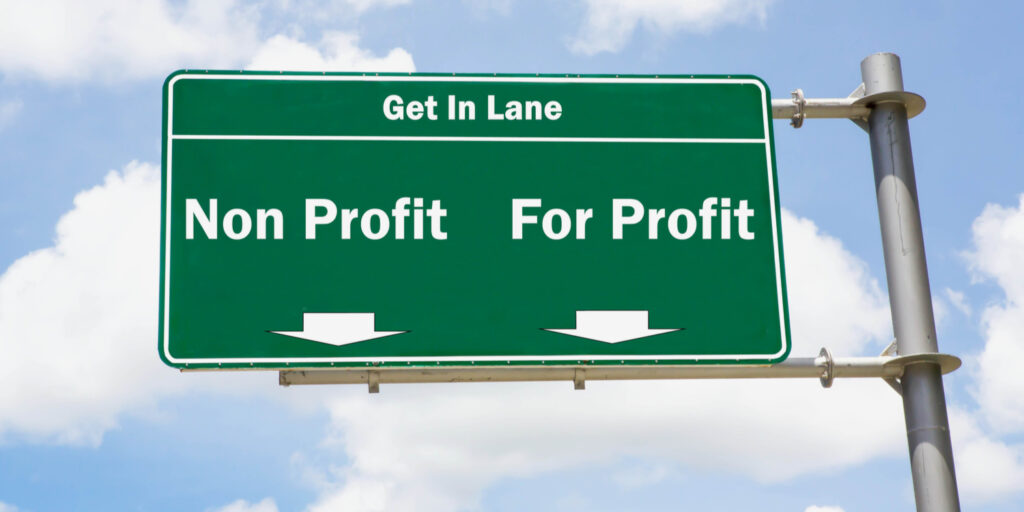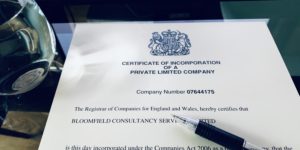In the UK, private limited companies can be formed as either limited by shares or limited by guarantee. While both company structures are incorporated as legal entities and provide limited liability protection to their owners, there are fundamental differences between the two.
These distinctions determine their suitability for different types of businesses and organisations, so let’s take a closer look at their similarities and differences.
Key Takeaways
- Companies limited by shares are generally used by for-profit businesses, while companies limited by guarantee are used for non-profit ventures (e.g., charities)
- Both company structures offer limited liability for members and have similar incorporation requirements, but their key difference is how profits are used.
- A common reason for setting up a company limited by shares is tax efficiency. A common reason for setting up a company limited by guarantee is accessing certain types of funding.
Companies limited by shares vs. limited by guarantee
Companies limited by shares are the most popular business structure in the UK. This company type is generally used by for-profit (commercial) businesses.
They are owned by shareholders (also known as members) and run by directors. Sometimes, one individual is both a shareholder and a director.
The term ‘limited’ refers to limited liability, which protects the owners from being personally responsible for the company’s debts.
Meanwhile, companies limited by guarantee are designed for non-profit organisations and charities. The guarantors (also known as members) also benefit from limited liability, and one person can own and run the company.
What is the difference between a company limited by shares and guarantee?
Let’s break down what these two company structures involve and their key differences.
Companies limited by shares
Companies limited by shares are owned by shareholders and incorporated with share capital. This means that the company is divided into shares, each of which is assigned a nominal value (usually £1). Every member must agree to take at least one of these issued shares.
A share represents a portion of the company. In turn, the quantity and value of shares taken by each shareholder dictate:
- How much of the company they own and control
- What percentage of profits they’re entitled to receive as dividends
- The limit of their personal liability for company debts and financial losses
- The percentage of capital they can receive if the company is wound up
Companies limited by shares must be set up with a minimum of one shareholder and one share. You must also appoint one director as a minimum to manage the company. Generally, there is no limit to the number of shareholders, shares, and directors a company limited by shares can have.
It’s also common for shareholders to appoint themselves as directors. So, one person can hold both roles or own and manage a company with one or more other individuals.
Companies limited by guarantee
Companies limited by guarantee do not have shareholders. They are controlled by guarantors and are incorporated without share capital.
Each guarantor must provide a financial ‘guarantee’ (normally £1), which is the limit of their personal liability for company debts and financial losses.
- A guide to UK company formation
- Dormant accounts for limited by guarantee companies
- Directors, shareholders, PSCs, and company secretaries – an overview
A company limited by guarantee must be set up with at least one guarantor and one director. Typically, guarantors appoint themselves as directors. Alternatively, they can own and manage the company with one or more other individuals.
In most cases, companies limited by guarantee are set up by non-profit organisations, such as:
- Charities
- Amateur sports clubs
- Community groups and projects
- Cooperatives
- Membership organisations
- Trade associations
- Environmental organisations and campaign groups
- Community kitchens and food banks
- Neighbourhood associations
- Self-help groups
The purpose of non-profit organisations is to pursue specific charitable, social, environmental, or community-based objectives that benefit people or society rather than generate profits for private or personal gain.
This is why most companies limited by guarantee reinvest their profits back into the business rather than distributing surplus income to their members. However, there is no legal requirement to do this unless the company is also registered as a charity.
In summary, the difference between these two structures comes down to what you want to do with company profits. If you plan to keep profits for yourself (as a source of personal income), you should set up a company limited by shares.
However, if you intend to reinvest profits into the business to achieve non-profit objectives, it would be best to form a company limited by guarantee.
Why would I form a company limited by shares?
A company limited by shares is ideal for commercial businesses of all sizes and across all industries. The most common reasons for setting up a company limited by shares include:
- Owning and managing a for-profit business, either by yourself or with other people
- The assurance of ‘limited liability’, which protects shareholders from being pursued by the company’s creditors or claimants
- Tax efficiency – you can legitimately reduce your tax liability and enjoy better tax-planning opportunities through a limited company
- Establishing an impressive corporate identity
- Bidding on high-value contracts that are only open to incorporated businesses
- Opportunity to sell shares in the business in exchange for capital investment
- Protecting the name of your business
- Greater access to business funding and investment opportunities
- Claiming a wider range of tax-deductible allowances and expenses
- Access to more generous pension schemes
- Buying and holding assets in a company name
The range of benefits on offer makes this type of company a popular choice for freelancers and contractors, individuals who would normally operate as sole traders, SMEs, and large organisations and multinationals.
Why would I form a company limited by guarantee?
A company limited by guarantee is tailored to meet the specific needs of non-profit organisations, ranging from small community-based ventures to large international charities.
The most common reasons for setting up a company limited by guarantee include:
- Running a non-profit enterprise or setting up a charity, either by yourself or with other people
- Providing limited liability protection to yourself and other members
- Legitimising a non-profit organisation and establishing a professional image
- Satisfying eligibility criteria set by the Charity Commission or other governing bodies
- Accessing certain grants and other sources of funding
- Attracting more support such as investment, donations, or membership
- Protecting the name of your non-profit organisation
It’s worth mentioning that you can use a company limited by guarantee for a commercial business. However, there is little benefit in choosing this structure over a company limited by shares, which provides greater flexibility to businesses that are set up as for-profit ventures.
Ready to start your own company?
We hope this blog has helped you understand the similarities and differences between companies limited by shares and guarantee. If you’ve chosen the structure that’s right for you and are ready to start your own company, 1st Formations can help.
Follow our four simple steps to registering a company, or leave us any comments or questions you might have below.
Please note that the information provided in this article is for general informational purposes only and does not constitute legal, tax, or professional advice. While our aim is that the content is accurate and up to date, it should not be relied upon as a substitute for tailored advice from qualified professionals. We strongly recommend that you seek independent legal and tax advice specific to your circumstances before acting on any information contained in this article. We accept no responsibility or liability for any loss or damage that may result from your reliance on the information provided in this article. Use of the information contained in this article is entirely at your own risk.












Join The Discussion